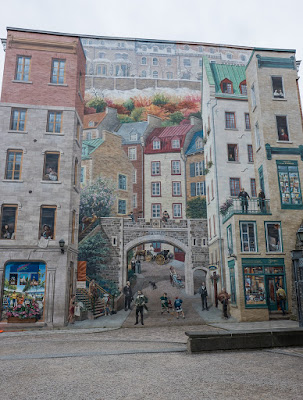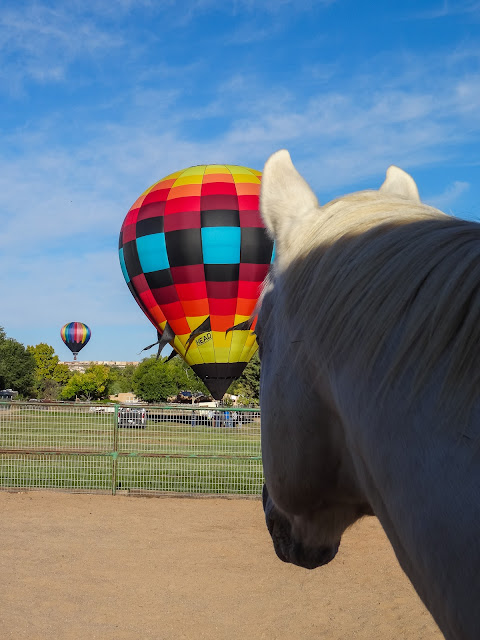The Last Two Churches in Milan
Last night we made one last pass through the Milan guidebook,
trying to decide if there were any more critical spots to visit. Places that
would cause abject regret upon discovering that we were so close yet so far. There
are few things worse in life than chatting with someone about some place you’ve
visited and having them say, “Oh, you didn’t find the time to go there?”
MLW and I are hard-core street pounding mega-travelers. We
think nothing about walking 10 miles in a day and covering 23 centuries in
history, from Celtic tribes to Frank Gehry. It’s what we do. I will however
admit when it’s 78 degrees and a bit on the humid side and the sun is straight
up over your head in these Baroque canyons, we get a bit weary. On this trip,
we’ve been stuffing the mornings and taking a midday break before going out
around dinner time. It’s been working for us and it’s allowed me to develop a
nice relationship with the food truck guy around the block.
Well, as it turned out there were two more churches that
could not go unseen. Both roughly in the same area as The Last Supper, we
decided to head across country and make a grand loop back towards home. The
area around The Last Supper is one of the best in Milan, with quiet leafy
streets lined with upscale apartment buildings. Not many services, but a very
elegant place to live. A few significant modern apartment buildings were marked
by the very convenient signs the city places by important attractions. It was a
nice walk, cooler than the busy streets we’d been on and less hurried since we
were not driven by a ticket deadline.
The first stop, the Basilica di Sant’Ambrogio was built in
386 by Bishop Ambrose who later became the patron saint of Milan. Built of red brick
and framed by bell towers from the 9th and 12th century,
you know you’ve arrived when you come around the corner and are confronted with
its mass. Enlarged in the 9th and 11th centuries, and
finally completed in the 17th with Bramante’s Portico della
Canonica, it is Milan’s finest remaining Romanesque church. You enter through a
columned atrium, designed as shelter for pilgrims. The inside was wondrous, beautifully
decorated in styles spanning 14 centuries. Incredibly, much of the 4th
and 5th century stone work is in excellent condition. The highlight
for me was the crypt, when Saint Ambrose lies in repose side by side with two
martyrs, Sts. Gervasius and Protasius. The Golden Altar at front of the nave
was constructed from gold, marble and exotic wood in 835 AD.

One more church to go, San Lorenzo Maggiore, slightly across
town but on the arc back home. Built on a Roman temple, it dates to the 4th
century and is the oldest church in Milan. It also sports the largest dome,
which made it irresistible to me. It’s foundation (visible from a small room
beneath the altar) is comprised of huge stone blocks lifted from nearby Roman
buildings. Out front is a line of Roman columns and three gates from the
original city walls. The dome collapsed many times over the centuries, only to
be rebuilt in slightly different styles. The rough stone that dominates the
interior was once clad in various marbles, stolen for other purposes over time.
The Cappella di Sant'Aquilino has
several beautiful mosaics as well as a silver sarcophagus holding his remains.
A second sarcophagus holds the remains of Galla Placidia, sister of Honorius, last emperor of Rome and wife
of Ataulf, king of the Visigoths. It is thought by some historians that this church
was originally that of a Roman Emperor.
This was an extraordinary church, full of beautifully
preserved ancient art. The Cappella di Sant'Aquilino was lined with some amazing frescoes and mosaics, dating to the original
church. Absolutely worth the midday haul across town, and most definitely one
of places I would not want to discover I’d missed.
We arrived back at our apartment around 2 PM and had a nice lunch on the terrace. I like Milan, and I'm glad we came. Sometimes I'm sorry to leave a place, and unlike Rome I'm getting a bit of that here. Aside from a couple of museums, we've covered just about everything we wanted to see, a genuine accomplishment in only 4 days. I think I'll miss this place.



























Comments